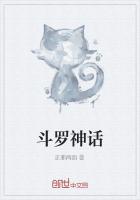There the case stands. If Mattioli died in April, 1694, he cannot be the Man in the Iron Mask. Of Dauger's death we find no record, unless he was the Man in the Iron Mask, and died, in 1703, in the Bastille. He was certainly, in 1669 and 1688, at Pignerol and at Sainte-Marguerite, the center of the mystery about some great prisoner, a Marshal of France, the Duc de Beaufort, or a son of Oliver Cromwell. Mattioli was not mystery, no secret. Dauger is so mysterious that probably the secret of his mystery was unknown to himself. By 1701, when obscure wretches were shut up with the Mask, the secret, whatever its nature, had ceased to be of moment.
The captive was now the mere victim of cruel routine. But twenty years earlier, Saint-Mars had said that Dauger "takes things easily, resigned to the will of God and the King."
To sum up, on July 1, 1669, the valet of the Huguenot intriguer, Roux de Marsilly, the valet resident in England, known to his master as "Martin," was "wanted" by the French secret police. By July 19, a valet, of the highest political importance, had been brought to Dunkirk, from England, no doubt. My hypothesis assumes that this valet, though now styled "Eustache Dauger," was the "Martin of Roux de Marsilly. He was kept with so much mystery at Pigernol that already the legend began its course; the captive valet was said to be a Marshal of France! We then follow Dauger from Pignerol to Les Exiles, till January, 1687, when one valet out of a pair, Dauger being one of them, dies. We presume that Dauger is the survivor, because the great mystery still is "what he HAS
DONE," whereas the other valet had done nothing, but may have known Dauger's secret. Again the other valet had long been dropsical, and the valet who died in 1687 died of dropsy.
In 1688, Dauger, at Sainte-Marguerite, is again the source and center of myths; he is taken for a son of Oliver Cromwell, or for the Duc de Beufort. In June 1692, one of the Huguenot preachers at Saint-Marguerite writes on his shirt and pewter plate and throws them out of the window.[1] Legend attributes these acts to the Man in the Iron Mask, and transmutes a pewter into a silver plate.
Now, in 1689-1693, Mattioli was at Pignerol, but Dauger was at Sainte-Marguerite, and the Huguenot's act is attributed to him.
Thus Dauger, not Mattioli, is the center round which the myths crystallize: the legends concern him, not Mattioli, whose case is well known, and gives rise to no legend. Finally, we have shown that Mattioli probably died at Sainte-Marguerite in April, 1694.
If so, then nobody but Dauger can be the "old prisoner" whom Saint-
Mars brought, masked, to the Bastille, in September, 1698, and who died there in November, 1703. However suppose that Mattioli did not die in 1694, but was the masked man who died in the Bastille in 1703, then the legend of Dauger came to be attributed to Mattioli: these two men's fortunes are combined in the one myth.
[1] Saint-Mars au Ministre, June 4, 1692.
The central problem remains unsolved.
What had the valet, Eustache Dauger, done?[1]
[1] One marvels that nobody has recognized, in the mask, James Stuart (James de la Cloche), eldest of the children of Charles II.
He came to England in 1668, was sent to Rome, and "disappears from history." See infra, "The Mystery of James de la Cloche."
III
THE VALET'S MASTER
The secret of the Man in the Iron Mask, or at least of one of the two persons who have claims to be the Mask, was "What had Eustache Dauger done?" To guard this secret the most extraordinary precautions were taken, as we have shown in the foregoing essay.
And yet, if secret there was, it might have got wind in the ******st fashion. In the "Vicomte de Bragelonne," Dumas describes the tryst of the Secret-hunters with the dying Chief of the Jesuits at the inn in Fontainebleau. They come from many quarters, there is a Baron of Germany and a laird from Scotland, but Aramis takes the prize. He knows the secret of the Mask, the most valuable of all to the intriguers of the Company of Jesus.
Now, despite all the precautions of Louvois and Saint-Mars, despite sentinels for ever posted under Dauger's windows, despite arrangements which made it impossible for him to signal to people on the hillside at Les Exiles, despite the suppression even of the items in the accounts of his expenses, his secret, if he knew it, could have been discovered, as we have remarked, by the very man most apt to make mischievous use of it--by Lauzun. That brilliant and reckless adventurer could see Dauger, in prison at Pignerol, when he pleased, for he had secretly excavated a way into the rooms of his fellow prisoner, Fouquet, on whom Dauger attended as valet.
Lauzun was released soon after Fouquet's death. It is unlikely that he bought his liberty by the knowledge of the secret and there is nothing to suggest that he used it (if he possessed it) in any other way.
The natural clew to the supposed secret of Dauger is a study of the career of his master, Roux de Marsilly. As official histories say next to nothing about him, we may set forth what can be gleaned from the State Papers in our Record Office. The earliest is a letter of Roux de Marsilly to Mr. Joseph Williamson, secretary of Lord Arlington (December, 1668). Marsilly sends Martin (on our theory Eustache Dauger) to bring back from Williamson two letters from his own correspondent in Paris. He also requests Williamson to procure for him from Arlington a letter of protection, as he is threatened with arrest for some debt in which he is not really concerned. Martin will explain. The next paper is indorsed "Received December 28, 1668, Mons. de Marsilly." As it is dated December 27, Marsilly must have been in England. The contents of this piece deserve attention, because they show the terms on which Marsilly and Arlington were, or, at least, how Marsilly conceived them.















